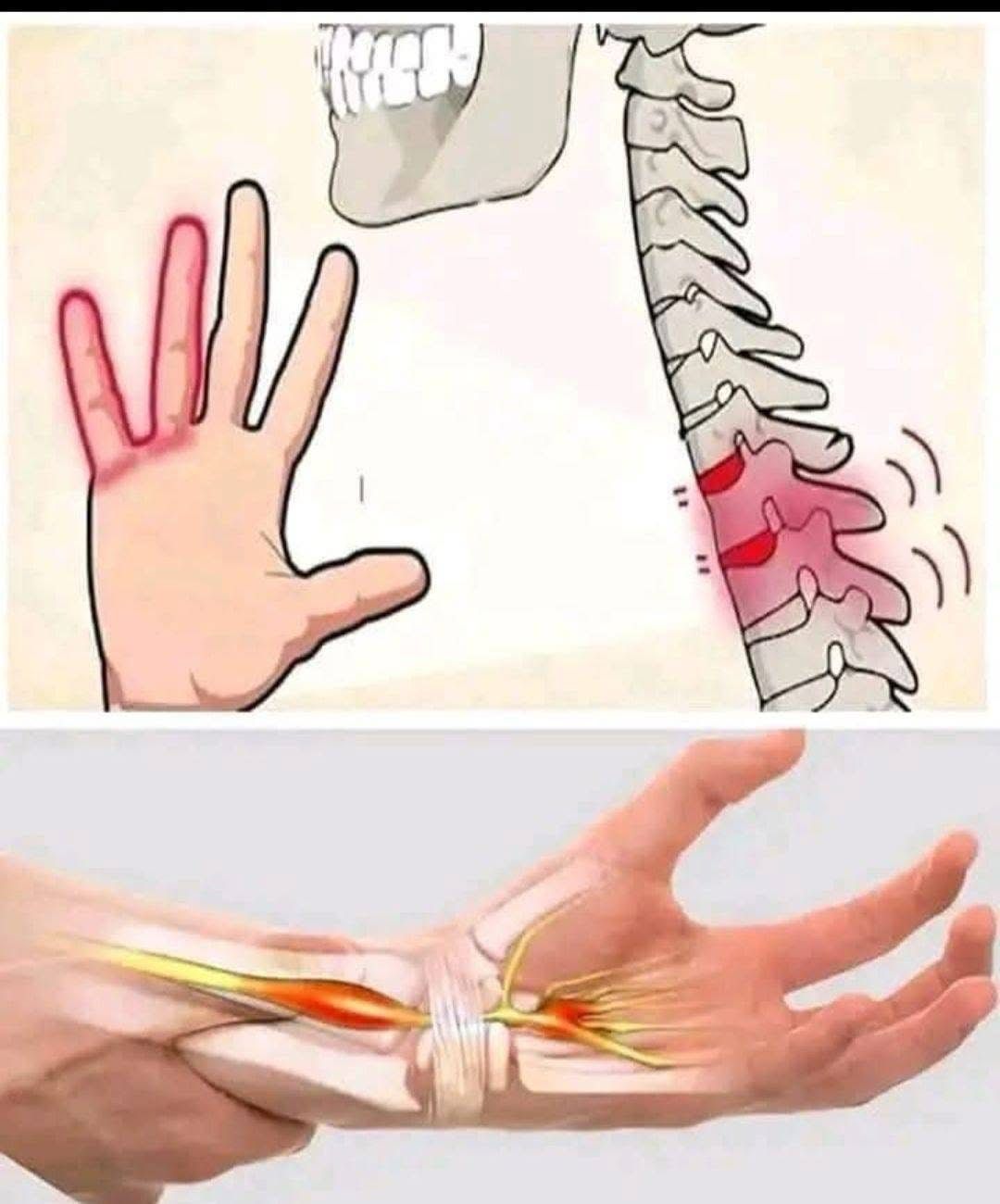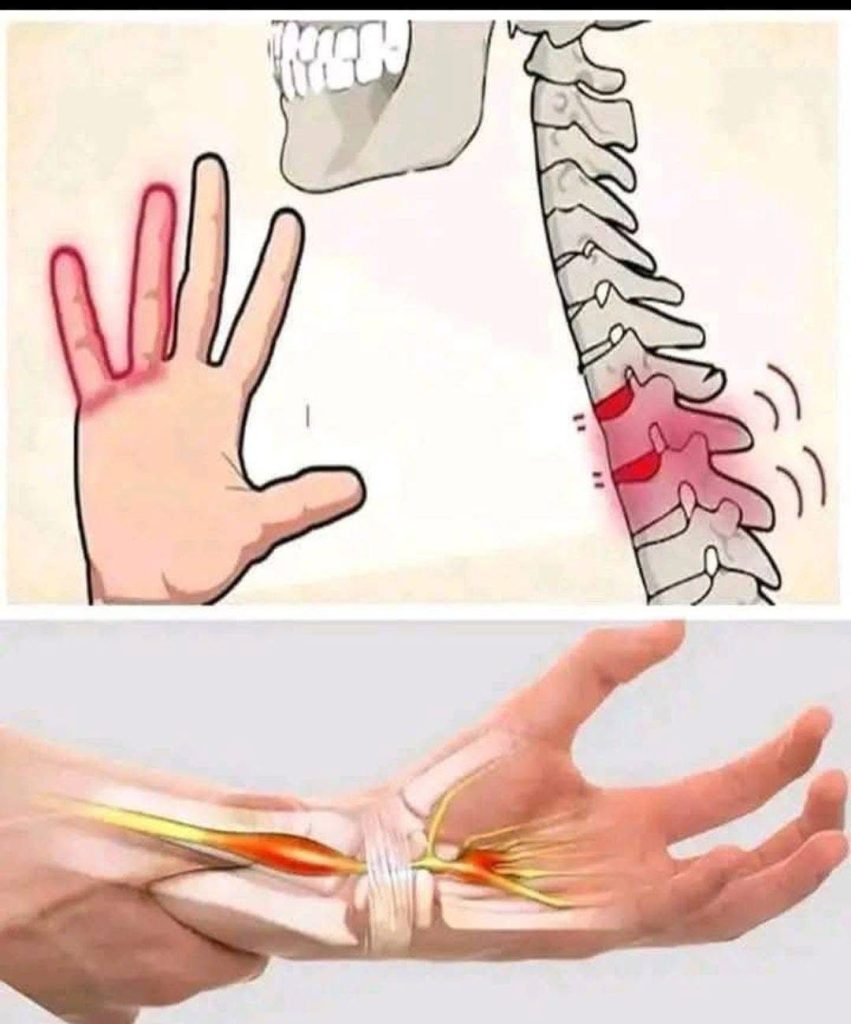Numbness or tingling in the hands, often described as the “pins and needles” sensation, can be a puzzling and sometimes worrying experience. It can range from a temporary discomfort to a sign of an underlying health issue. Let’s explore some common and serious causes for this sensation.
1. Temporary Nerve Pressure from Sleep Position
One of the most common causes of hand numbness is sleeping in an awkward position that puts pressure on nerves. When you rest with your arm or hand under your head or body, it can compress the nerves, restricting blood flow. This results in the tingling or numb sensation you often feel when waking up. The good news is that shifting your position usually resolves this issue within moments.
2. Repetitive Strain and Carpal Tunnel Syndrome
Extended periods of repetitive movement, such as typing, using a mouse, or working with hand tools, can lead to pressure on the median nerve at the wrist, causing carpal tunnel syndrome. This condition results in numbness, tingling, or a “pins and needles” feeling in the fingers and hand. Rest and ergonomic adjustments can help, but severe cases may require medical treatment or surgery.

3. Vitamin B12 Deficiency
Vitamin B12 plays a crucial role in nerve health. A deficiency can lead to neurological symptoms like tingling, numbness, or weakness in the hands and feet. People with restrictive diets, like vegetarians or vegans, or those with digestive disorders (e.g., Crohn’s disease) that affect nutrient absorption, are more at risk. If left untreated, a B12 deficiency can lead to permanent nerve damage, making it important to address with diet or supplements.
4. Electrolyte Imbalance
Electrolytes such as calcium, potassium, and sodium are essential for proper nerve function. When your electrolyte levels become imbalanced—due to dehydration, medications, or underlying health conditions—it can lead to nerve dysfunction, which might result in tingling or numbness. Ensuring you stay hydrated and managing any electrolyte imbalances can alleviate these symptoms.
5. Diabetes and Peripheral Neuropathy
Diabetes, particularly when blood sugar levels are poorly controlled over time, can cause nerve damage, leading to a condition known as peripheral neuropathy. This affects the hands and feet, causing numbness, tingling, or a burning sensation. It’s estimated that around 50% of people with diabetes will experience some form of neuropathy, making it critical for individuals with diabetes to monitor their blood sugar levels and get regular checkups.
6. Neck or Spinal Issues
Conditions like herniated discs, cervical spondylosis (age-related wear on the spine), or spinal stenosis can put pressure on nerves in the neck or upper spine. This can cause radiating pain, tingling, or numbness down the arms to the hands. This is often accompanied by neck stiffness or pain, and a doctor may recommend physical therapy, medications, or in some cases, surgery.
7. Autoimmune Disorders
Certain autoimmune diseases, like rheumatoid arthritis, lupus, or Guillain-Barré syndrome, can cause nerve damage, leading to tingling sensations in the hands. These conditions are often accompanied by other symptoms such as joint pain, muscle weakness, or fatigue. If you suspect an autoimmune disorder, it’s essential to consult with a healthcare provider to determine the best course of treatment.
8. Poor Circulation
Reduced blood flow can cause a tingling feeling in your hands, especially in cold weather. Conditions like Raynaud’s phenomenon, which causes blood vessels to constrict and limit blood flow to extremities, can lead to these sensations. Plaque buildup in arteries (atherosclerosis) or other circulation issues can also cause similar symptoms. If you experience persistent tingling, it’s a good idea to see a doctor to rule out circulation problems.
9. Nerve Compression from Cysts or Tumors
Non-cancerous growths, such as ganglion cysts, can put pressure on nerves in the hands, causing numbness or tingling. These cysts may also cause joint pain or restricted movement. If you suspect a growth or cyst is pressing on a nerve, a doctor may suggest imaging tests or a biopsy to assess the situation.
10. Infections
Certain viral or bacterial infections, like shingles or Lyme disease, can directly affect the nerves, leading to tingling or numbness in the hands and other parts of the body. Shingles, caused by the reactivation of the chickenpox virus, often results in a painful rash and nerve symptoms, while Lyme disease can cause neurological issues if left untreated.
When to Seek Medical Attention
While occasional tingling or numbness may be harmless, persistent or severe symptoms warrant a visit to a healthcare provider. Seek medical attention immediately if you experience:
- Numbness accompanied by weakness or paralysis
- Slurred speech or confusion
- Dizziness or loss of coordination
- Numbness that spreads to other parts of your body, especially the legs or face
While numbness and tingling in the hands can often be traced back to simple causes like poor sleep position or repetitive use, they can sometimes signal more serious health issues. If the sensations are frequent, long-lasting, or accompanied by other symptoms, it’s important to consult with a healthcare professional to identify the underlying cause and receive the proper treatment. Early detection can help prevent long-term damage and improve your quality of life.


